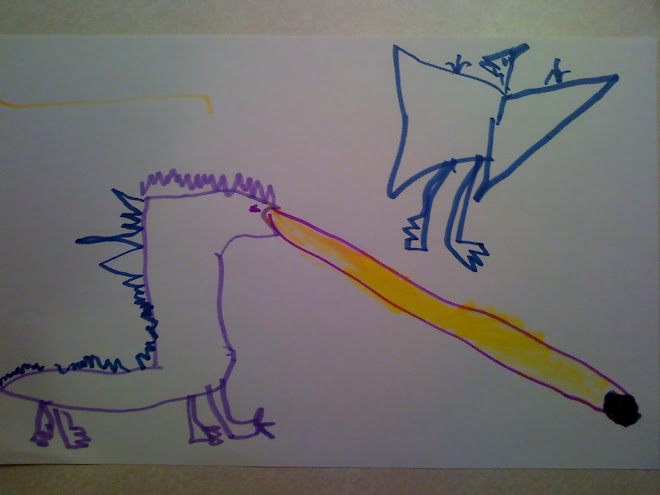The booklet cover art from the Criterion Collection's "Godzilla"
The news that the Criterion Collection would be releasing a remastered version of Godzilla (54) along with "Godzilla, King of the Monsters" was extremely satisfying, to say the least. While I was a big fan of the Classic Media DVD release, and still think it is one of the best in terms of picture quality and extra features, I was underwhelmed by Classic's Blu ray release. So the idea of Criterion "doing it right" made me very hopeful for a definitive version of this classic film on Blu ray.
Having explored most of the features of the Criterion release, it is my opinion that they have delivered on that hope. Both versions are included, and they look and sound wonderful. I'm not one to pay extremely close attention to the technical specifics, so all I can tell you is that the team at Criterion has done an excellent job tweaking the film for this particular format. In many ways it reminds me of the print that was shown at G-FEST a couple years ago, when Mr. Akira Takarada was in attendance.
The thing I enjoy the most about this release, however, is the audio commentary provided by David Kalat. He turns in two commentaries--one for each film--and they simply are two of the most engaging audio commentaries I've ever heard for any cinematic work. Since the Classic release had audio commentaries of their own, Mr. Kalat did not mine the same territory, but took his thoughts in different directions, to outstanding effect. For example, for the original Japanese film, he delves into the cultural context of Godzilla, applying the "Lucky Dragon" incident to the opening scenes in a way that makes the history come alive. His commentary on the American release gives a highly detailed account of the process through which "Godzilla" went before it was presented to Western audiences. I was fascinated to learn that at the time of its release, dubbing was only done to films that distributors thought had a chance of making a dent at the box office. Today there is a perception that dubbing equals "cheap hack job," but according to Kalat that is certainly not the case with "Godzilla."
Not only is Kalat's commentary literate and substantive from a content standpoint, but it is also delivered with polish and enthusiasm. To put it tactfully, audio commentaries do not always live up to their potential; Kalat's efforts on this release demonstrate that an excellent commentary track can not only enhance the viewing experience, but also be enjoyable on its own terms.
Other fantastic extras are included, such as interviews with Akira Takarada and Haruo Nakajima, which are very well produced and presented in high definition. A concise documentary about the "Lucky Dragon" incident is informative and well worth watching, as is the longer-form interview with composer Akira Ifukube, whose musical themes are synonomous with the character of Godzilla. There is even more included that I have yet to explore, such as featurettes on the special effects of Godzilla. Even the packaging itself is worthy of comment, with part of it folding out into a Godzilla pop-up image! I am admittedly a sucker for this kind of attention to detail--and Godzilla, in both of these incarnations, deserves it.
By its own reckoning, the Criterion Collection is "a continuing series of important classic and contemporary films." To see "Godzilla/Godzilla: King of the Monsters" regarded as such is not just exciting, but also is a vindication of sorts for those who have long thrilled to its dark, visceral vision. Moreover, it is gratifying to see names such as Honda, Tsuburaya, Ifukube, Takarada, and Shimura where they belong--among the best of world cinema.



































































No comments:
Post a Comment